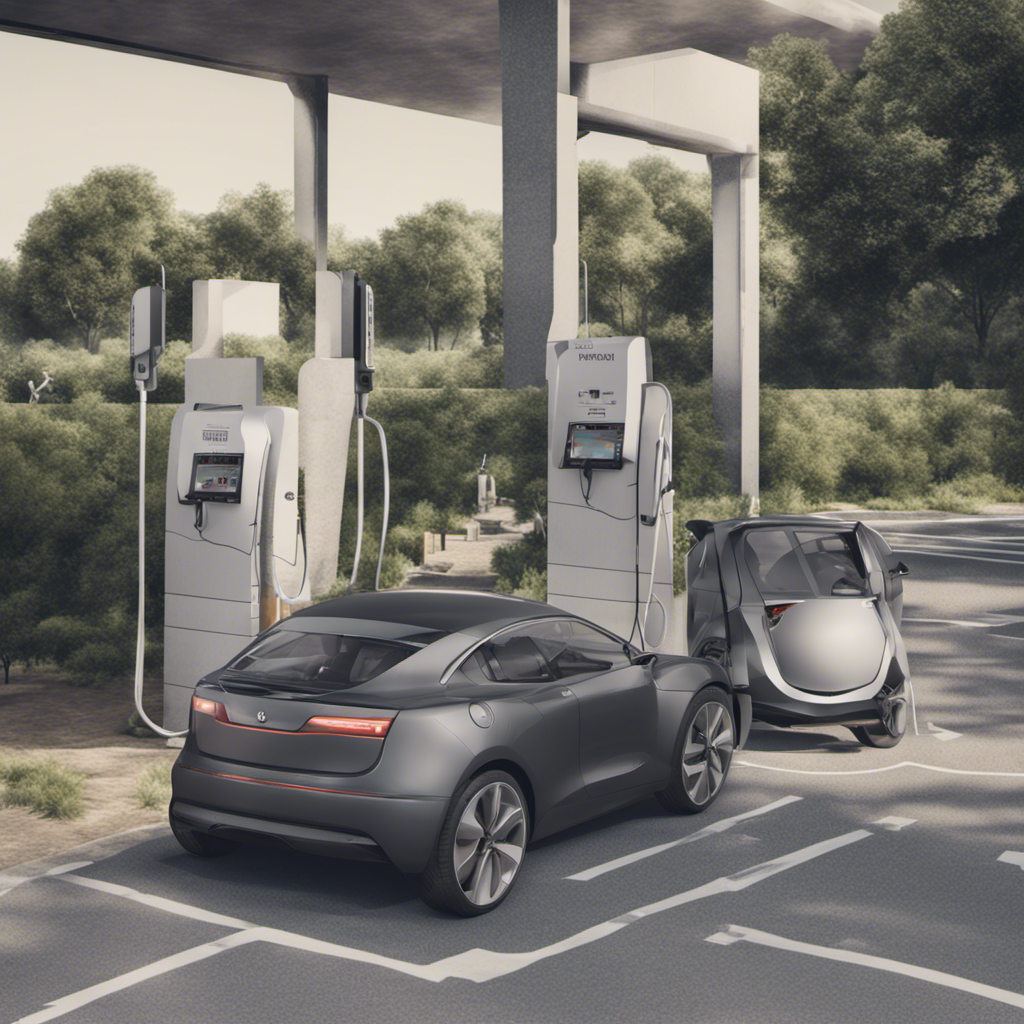
Electric Cars: Overview and Future Potential
Introduction
In recent years, electric cars have gained significant attention as a promising solution to reduce greenhouse gas emissions and combat climate change. Along with advancements in technology, the declining costs of batteries and increasing charging infrastructure have contributed to the rapid growth of the electric vehicle (EV) market. In this blog post, we will provide a comprehensive overview of electric cars, their benefits, challenges, and explore their future potential.
A Brief History of Electric Cars
Contrary to popular belief, electric cars are not a new concept. The first electric vehicle was developed as early as the 19th century. However, due to limitations in battery technology and the dominance of petrol-powered vehicles, electric cars struggled to gain widespread popularity. It was only in recent years, as environmental concerns and energy security became more pressing, that electric cars were revitalized as a viable alternative.
How Electric Cars Work
Electric cars rely on rechargeable batteries to power an electric motor, providing propulsion. These batteries store electrical energy, which is then supplied to the motor to generate torque. The motor, in turn, drives the wheels of the vehicle, enabling it to move. Energy is stored in either lithium-ion or solid-state batteries, which have shown significant improvements in terms of energy density and durability.
Benefits of Electric Cars
Environmental Impact
One of the main advantages of electric cars is their potential to reduce greenhouse gas emissions. As they do not rely on fossil fuels for propulsion, electric cars produce zero tailpipe emissions, thus improving air quality and reducing pollution in urban areas. Furthermore, if charged using renewable energy sources, such as solar or wind power, the carbon footprint of electric cars can be reduced even further.
Energy Efficiency
Electric cars are more energy-efficient than their internal combustion engine (ICE) counterparts. While conventional cars utilizing petrol or diesel engines waste a considerable amount of energy through heat dissipation, electric cars convert a higher percentage of the electricity from the battery into actual propulsion. This efficiency gain translates into increased range and decreased energy consumption.
Cost Savings
Although electric cars may have higher upfront costs compared to traditional vehicles, they offer long-term cost savings. The price of electricity needed to charge an electric car is considerably lower than the cost of gasoline or diesel, resulting in reduced fuel expenses. Moreover, as the maintenance requirements of electric vehicles are typically simpler and involve fewer parts, the overall cost of ownership can be significantly lower over the lifespan of the vehicle.
Noise Pollution
Electric cars operate almost silently compared to their noisy combustion engine counterparts. This reduction in noise pollution can have significant benefits, particularly in urban areas where car noise contributes to a less peaceful and less livable environment. Electric vehicles improve the quality of life for both pedestrians and drivers alike.
Challenges to Electric Car Adoption
While there are numerous advantages to electric cars, several challenges currently hinder their widespread adoption.
Limited Range and Charging Infrastructure
The limited range of electric cars, particularly when compared to traditional vehicles, remains a concern for potential buyers. Although battery technology has significantly improved, most electric cars on the market have a range limited to a few hundred miles, which is lesser than many gasoline-fueled vehicles. Additionally, the availability of charging infrastructure is still a challenge, particularly in rural areas or regions with limited access to electricity.
Battery Technology and Life Cycle
The performance and cost of batteries are critical factors in electric car adoption. Improvements in battery technology are necessary to increase the range, reduce charging times, and decrease costs. Additionally, the environmental impact of battery production and disposal should be considered to ensure a sustainable lifecycle for electric vehicles.
Manufacturing and Supply Chain
As electric car demand grows, manufacturers will face significant challenges in scaling up production while maintaining quality. Ensuring a reliable supply chain for critical components like batteries and electric drivetrains is also crucial. Collaboration between automakers, battery manufacturers, and government bodies is required to overcome these challenges.
The Future Potential of Electric Cars
The future of electric cars appears promising, with several trends and developments pointing towards increased adoption in the coming years:
Technological Advancements
Continual breakthroughs in battery technology are underway, with research focusing on improving energy density, reducing charging times, and extending battery lifespan. Innovations like solid-state batteries and advanced materials hold the potential to revolutionize electric car capabilities.
Infrastructure Development
Governments and private entities are investing in the expansion of charging networks to alleviate range anxiety and support the growing EV market. Fast-charging stations, bidirectional charging, and wireless charging technologies are being developed to enhance the convenience and accessibility of electric vehicle charging.
Policy and Regulations
Several countries have set aggressive targets and implemented supportive policies to encourage the adoption of electric cars. These include financial incentives, emission regulations, and mandates for zero-emission vehicles. Such policies, coupled with advancements in technology, are expected to drive the uptake of electric cars worldwide.
EV Ecosystem Integration
The integration of electric cars into smart grids and the development of vehicle-to-grid (V2G) technology offer various benefits. V2G allows electric vehicles to not only consume electricity but also feed power back into the grid, acting as a distributed energy storage solution. This integration facilitates the efficient management of renewable energy sources and supports grid stability.
Conclusion
Electric cars represent a promising and sustainable solution for reducing greenhouse gas emissions, improving air quality, and transitioning away from fossil fuels. While challenges such as limited range, charging infrastructure, and battery technology remain, ongoing advancements and supportive policies indicate a bright future for electric cars. With continued research, infrastructure development, and favorable regulatory frameworks, electric cars have the potential to reshape the automotive industry and make a significant positive impact on the environment.
References:
- National Renewable Energy Laboratory. (2018). Electric Vehicle Benefits and Considerations. Retrieved from https://www.nrel.gov/docs/fy18osti/68687.pdf
- International Energy Agency. (2021). Global EV Outlook 2021. Retrieved from https://www.iea.org/reports/global-ev-outlook-2021






